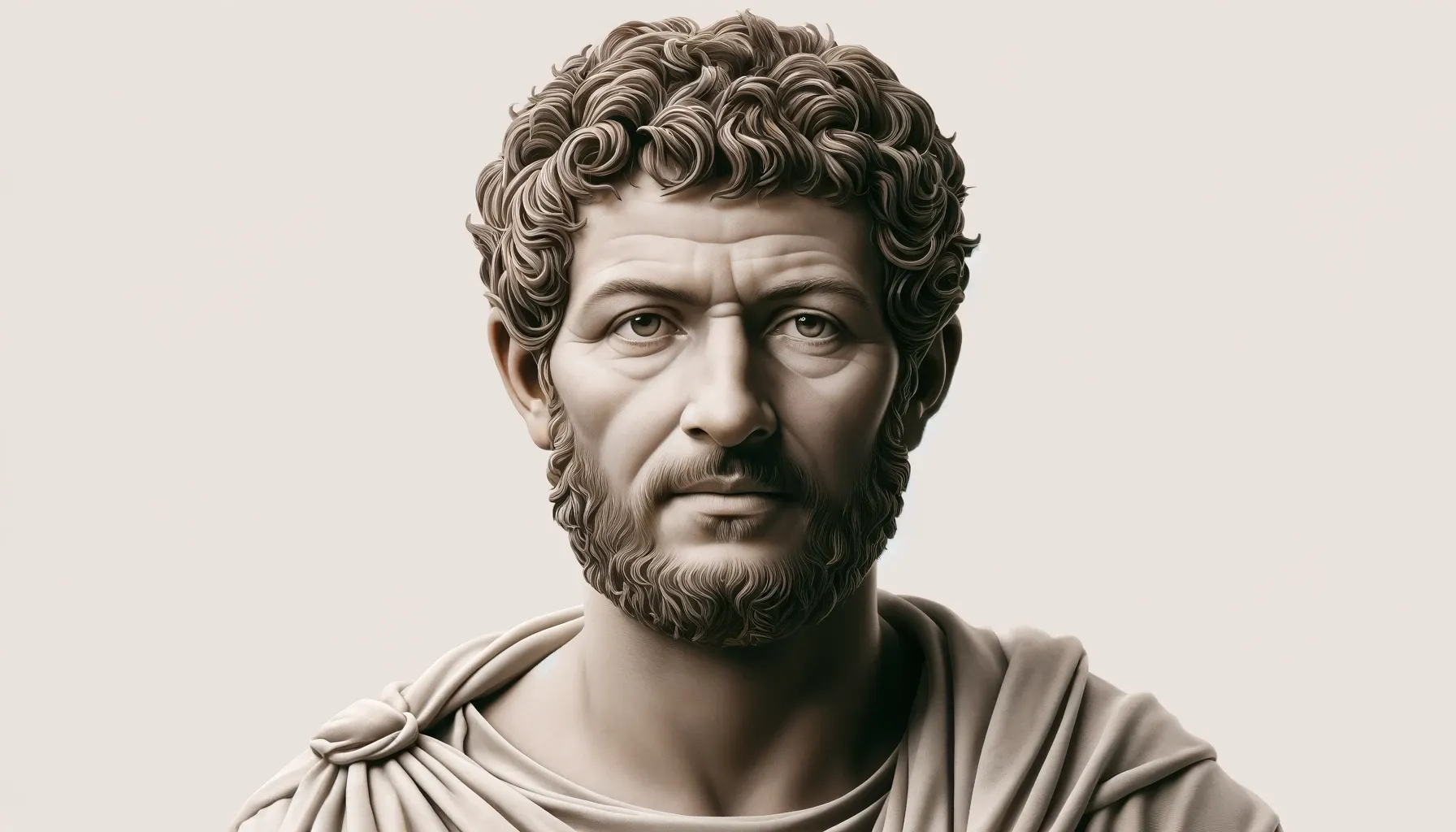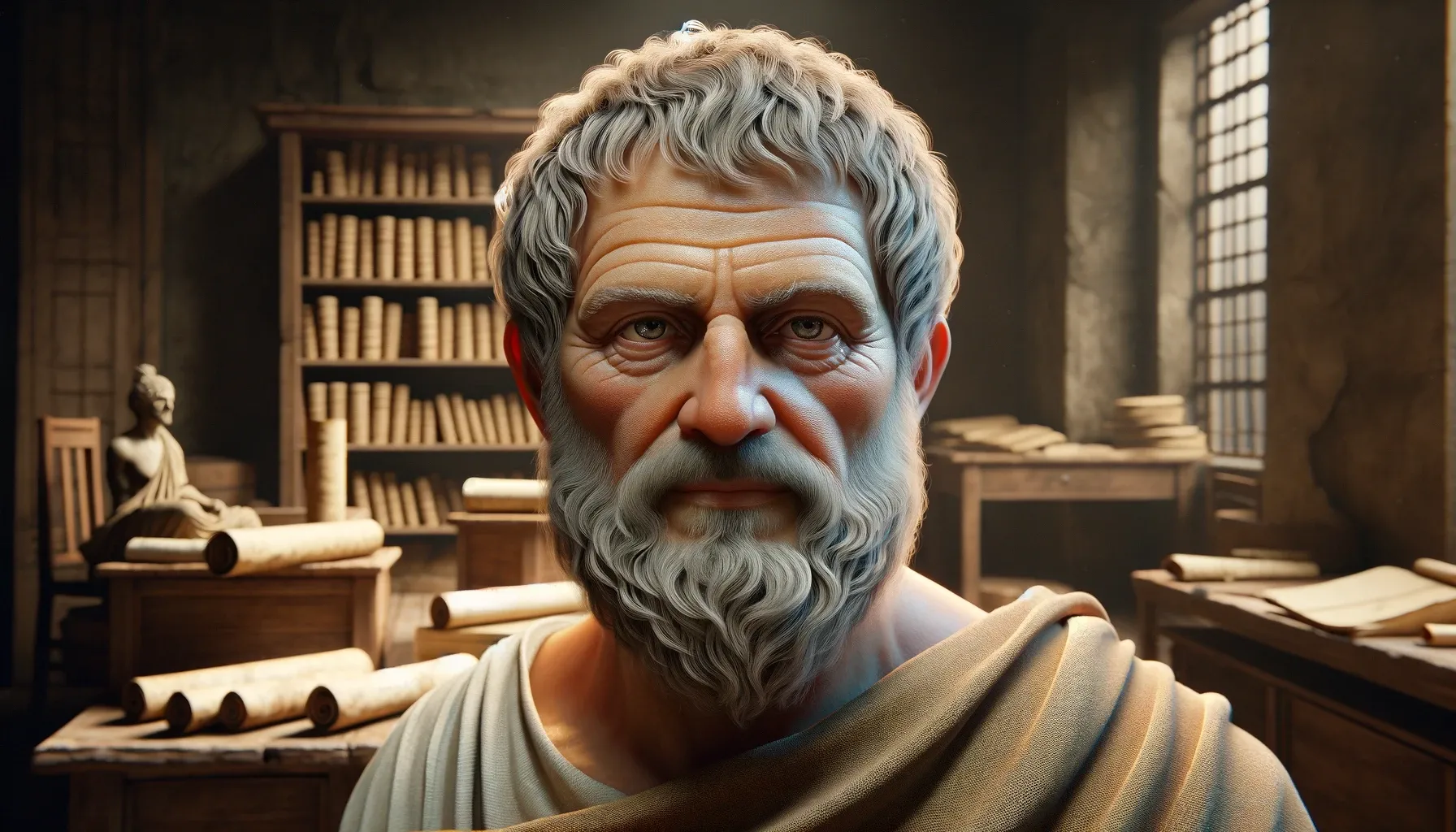The Timeless Appeal of Stoicism: From Ancient Rome to Today
Stoicism, lies in approaching life's challenges, emphasizing virtue, wisdom, and emotional resilience.

Stoicism, an ancient philosophy that originated in Greece and was later adopted by the Romans, continues to influence millions worldwide. Its enduring appeal lies in its practical approach to life's challenges, emphasizing virtue, wisdom, and emotional resilience.
For those not deeply versed in philosophy, Stoicism offers practical guidance for enhancing one’s life quality. According to Stoic ethics, we have control only over our perceptions and reactions to life’s challenges, suggesting that accepting what we can't control can lead to more tranquil daily living. Stoicism advocates for the pursuit of virtue as the key to not only a fulfilling life but also a meaningful existence, highlighting wisdom, courage, temperance, and justice as core virtues. Although Stoicism encompasses various philosophical areas to support its ethical views, a comprehensive understanding of these is not essential for applying its principles.
Some of Stoicism's most accessible works, such as Marcus Aurelius' 'Meditations' and Epictetus's 'Enchiridion,' cater well to those new to philosophy. Rather than laying out comprehensive philosophical systems, these texts provide succinct, aphoristic wisdom, enabling readers to quickly move from reading to reflecting on and applying the insights offered.
The Foundations of Stoicism
Stoicism was founded in the early 3rd century BC by Zeno of Citium but found its most influential proponents in the Roman Empire. Key figures such as Seneca, Epictetus, and Emperor Marcus Aurelius articulated Stoic principles that resonated deeply with Roman values of courage, self-discipline, and duty. The philosophy advocates living in harmony with nature, recognizing what is within our control, and meeting life's adversities with equanimity.
Stoicism's philosophical lineage draws from Socrates' conviction that virtue is the cornerstone of happiness and knowledge its pathway, and the Cynics' advocacy for a nature-aligned, simple existence, shunning material wealth.
Zeno of Citium, a Cypriot merchant turned philosopher in Athens, synthesized these influences into Stoicism's foundational tenets, celebrating human nature's inherent goodness and the necessity of living harmoniously with nature's dictates.
The philosophy was further refined by Zeno's successors, such as Chrysippus, who systematized Stoic thought and delved into its metaphysics. He proposed that a divine intelligence orders the cosmos, making each event part of a vast, preordained scheme.

Stoicism and the Roman Spirit
The spread of Stoicism in Rome can largely be attributed to the influx of Greek philosophers during the Hellenistic period, who introduced Stoicism among other Greek philosophical teachings.
Seneca's writings significantly contributed to the popularity of Stoicism within Roman society. His letters and essays, revered by the Roman elite, served as practical guides for ethical and moral living. Seneca's approach made Stoicism more accessible, emphasizing its application in daily life.
Stoicism's influence persisted throughout the Roman Empire and remains relevant today, with its focus on reason, self-control, and harmony with nature's law. The Romans embraced Stoicism due to its compatibility with their societal ideals.
Stoicism's emphasis on personal virtue and responsibility, resilience in the face of hardship, and the importance of fulfilling one's role in society mirrored the Roman ethos. The writings of Marcus Aurelius, in particular, exemplify how Stoicism was applied by individuals at the highest echelons of power to navigate the complexities of leadership and governance.
Important stoic philosophers
As mentioned above, during the Roman era, Stoicism was profoundly shaped by figures like Seneca, Epictetus, and Marcus Aurelius. Seneca, a statesman and philosopher of the first century AD, is celebrated for his practical Stoic teachings, emphasizing the application of Stoic principles in daily life.
Epictetus, once a slave, emerged as a philosopher championing mental discipline and the acceptance of fate. He argued that peace and tranquility could be attained by embracing things beyond one's control.
Marcus Aurelius, the philosopher-emperor, dedicated his writings to the virtues of self-control and humility. He maintained that inner peace and tranquility could be achieved by living in harmony with nature and exercising self-restraint.

Stoicism and the Roman Society
Stoicism deeply permeated Roman society, influencing more than just the political landscape. The philosophy, advocating for self-control, rational thought, and virtuous conduct, became a model of ethical behavior for the Roman elite. As Stoicism gained traction among these influential circles, it progressively disseminated across broader societal levels.
The appeal of Stoicism in Roman society was largely due to its focus on reason and self-discipline, traits highly valued by individuals aspiring to rise above commonality and assert their moral excellence. This widespread adoption among the elite helped cement Stoicism's role as a significant philosophical influence in Rome.
The allure of Stoicism among Rome's upper echelons, including affluent merchants and aristocrats, stemmed from its focus on self-discipline and rationality. This philosophical approach offered the elite a means to differentiate themselves from the general populace and to assert their moral superiority. As more members of the upper classes embraced Stoic principles, the philosophy progressively permeated throughout Roman society.
Prominent figures within the Roman elite who were adherents of Stoicism include Seneca the Younger, who served as an advisor to Emperor Nero and was noted for his philosophical writings, and Marcus Aurelius, an emperor whose reflections on Stoicism were meticulously recorded in his personal journals.
Stoicism played a pivotal role in Roman education, especially among the aristocracy. Roman academic institutions frequently incorporated Stoic principles into their curricula, focusing on imparting the values of virtue, reason, and self-discipline to their students. This focus on Stoic teachings in educational settings contributed significantly to the widespread adoption of Stoicism across Roman society.
Stoicism had a significant impact on the Roman Senate, with numerous senators known for embracing its principles. These Stoic senators were generally regarded as more virtuous and rational compared to others, enhancing their sway over decisions. They frequently utilized their roles to champion Stoic values, advocating for a society that prioritized rationality and moral integrity.
Moreover, Stoicism was a favored subject among philosophers and educators in Rome. Notably, the philosopher Epictetus provided instruction in Stoic philosophy to his pupils in Nicopolis. His teachings were eventually compiled and published as the "Enchiridion," or "Handbook," which served as a practical guide to Stoic philosophy.
“Stoicism is popular now because people feel out of control. . . . Stoicism says, accept that you cannot control the external world, but that you can find a measure of serenity and happiness and moral meaning by focusing on what is in your control, your own beliefs and your own actions.” Jules Evans (contemporary philosopher)
Resurgence in Modern Times
In recent years, Stoicism has seen a resurgence in popularity, thanks to its practical solutions to modern-day problems. The fast-paced, often stressful nature of contemporary life has led many to seek out Stoic wisdom on cultivating inner peace, dealing with uncertainty, and focusing on what truly matters. Books, online communities, and courses on Stoicism have proliferated, indicating a growing interest in applying Stoic principles to improve mental health, productivity, and overall well-being.
Stoicism and Mental Health
One of the key reasons for Stoicism's modern appeal is its relevance to mental health. The Stoic practice of distinguishing between what we can control and what we can't is particularly useful in managing anxiety and reducing stress. By encouraging a focus on our responses to external events rather than the events themselves, Stoicism offers a powerful framework for building emotional resilience.
Stoicism in Leadership and Business
The principles of Stoicism have also found resonance in the realms of leadership and business. The emphasis on clear judgment, integrity, and perseverance under pressure provides valuable guidance for decision-makers. Successful entrepreneurs and leaders often cite Stoic teachings as instrumental in their approach to challenges and failures, highlighting the philosophy's applicability beyond personal development to professional excellence.
The continued popularity of Stoicism, from the Roman Empire to today, is a testament to its timeless wisdom and practicality. In a world that often feels chaotic and unpredictable, Stoicism provides a compass for navigating life's trials with grace and fortitude. By teaching us to focus on what truly matters and accept what we cannot change, Stoicism remains a powerful guide for living a meaningful and contented life.









About the Roman Empire Times
See all the latest news for the Roman Empire, ancient Roman historical facts, anecdotes from Roman Times and stories from the Empire at romanempiretimes.com. Contact our newsroom to report an update or send your story, photos and videos. Follow RET on Google News, Flipboard and subscribe here to our daily email.
Follow the Roman Empire Times on social media: